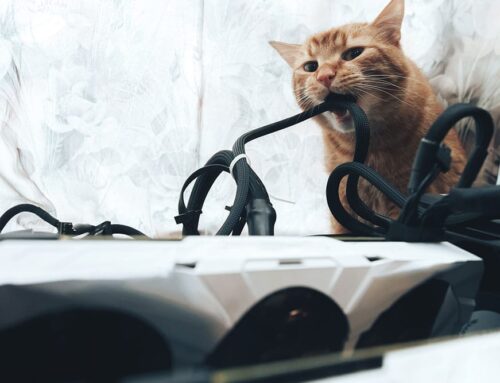Although all pets should be celebrated every day, a specific day in May is set aside for pets with special needs, such as those who are blind, deaf, chronically ill, or an amputee. On May 3, we acknowledge Specially-Abled Pets Day, which celebrates disabled pets and encourages families to open their homes to animals with special needs.
Choosing to welcome a specially-abled cat into your family is an admirable and rewarding decision, but such a pet comes with a set of challenges. Here are five things to consider before adopting a special needs cat.
#1: A specially-abled cat can be a huge commitment
Adopting a cat with special needs can require a huge commitment in regards to your time, finances, and emotions. As caretaker for a specially-abled pet, you’ll need to shoulder many burdens, depending on how many challenges your cat faces in everyday life. Some special needs cats require lots of attention and effort, while many simply need a safe space to live. Specially-abled cats may need daily medication, prescription diets, regular grooming and bathing, environmental modification, and an understanding person to provide appropriate care. However, although these cats require a bigger commitment than your typical adult house cat, they will repay you ten-fold with love and devotion.
#2: A specially-abled cat will need a special living space

Depending on your cat’s physical limitations, you may need to revamp a section of your home to provide your specially-abled pet an ideal living situation.
- For blind cats — Block access to stairs and tall furniture to ensure they cannot fall. Purchase horizontal scratching posts so they don’t feel the need to scale a tall tower. Keep the environment the same, and try to refrain from moving furniture. To help your blind cat navigate, guide them with strategically placed scent markers.
- For amputee or arthritic cats — Cats who are physically challenged, whether because of a missing limb or painful joints, require several home modifications to navigate easily and comfortably. Choose low-sided litter boxes that allow your cat easy access, and raise their food and water dishes to a comfortable height. Place firm orthopedic beds in your cat’s favorite resting area, since they can find jumping out of fluffy beds difficult. Entertain your cat at their level,without requiring them to jump or climb to gaze out a window or enjoy a lookout perch. Interactive toys, food puzzles, and scratching posts can help entertain your cat without excessive physical activity.
#3: Your specially-abled cat may need a calm environment
A chaotic, noisy environment may be stressful for a special needs cat. Small children and other pets may provide such an environment, so consider your home life carefully before adopting a cat who requires peace and quiet.
#4: A special needs cat can impact your budget
Some special needs cats require frequent veterinary care, so ensure you have reliable, safe transportation. Also, consider the financial aspect of owning a special needs cat. Healthy pets require many necessities to remain in tip-top shape, and a cat with a chronic illness or condition typically needs much more, especially in terms of veterinary care. Carefully consider how a special needs cat could impact your budget, as lifelong management of some chronic conditions can be costly.
#5: Will you be comfortable providing advanced care for your specially-abled cat?

Your special needs cat may require frequent veterinary care, but you can likely provide a great deal of their care at home. For example, a cat with chronic kidney disease should be frequently evaluated for changes in kidney function, blood pressure, and urinary health, which require a veterinary visit. At home, you can administer subcutaneous fluids, anti-nausea medication, kidney health supplements, and prescription foods to help maintain your pet’s quality of life. Many specially-abled pets require some sort of medication, in oral or injectable form, so ask yourself if you’re comfortable administering medications and other types of advanced care for your unique cat.
When you adopt a cat with a physical limitation or a medical issue, you’re helping the cat live a full and happy life. Adopting a special needs cat is a fulfilling, rewarding experience, for both you and your new feline friend, but you must be aware of the extra care they will need.
Are you considering welcoming a special needs cat into your family? Contact our Just Cats Clinic team with any questions prior to adoption, and then schedule an appointment for your new feline friend.













